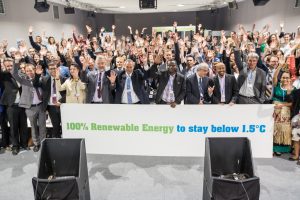Recently, Nigeria announced it has reviewed its rural electricity programme to concentrate on using off-grid solutions to provide electricity to millions of her rural populace without national grid connection or underserved by the grid.
This disclosure by power minister, Mr. Babatunde Fashola in Lagos, was pleasing, but even more for his subsequent announcement of a $150 million financial booty for rural electrification programmes which the government plans to execute using its universities and hospitals as anchors.
As stated by Fashola, the revised rural electrification programme will concentrate on using off-grid solutions – solar, wind, biomass, small hydro and others, to provide electricity to homes and small agro-processing centres in the rural areas.
While this is a warm development, we believe the revised programme will be managed by the Rural Electrification Agency (REA) which is statutorily established to provide rural folks with access to electricity, but has sadly failed in this task.
Before this is done, if it will be, OGN demands that the government be astute in its engagement of the REA in this new phase.
Armed with a very exciting mandate that should ordinarily make it extremely valuable in Nigeria’s development matrix, the REA had in its operational history restricted itself to contracting for power equipment installations in villages and towns without supplies. It has simply chosen to play small in a big pond of opportunities, even with its capacities.
Its managers have also remained quite creative but in enriching themselves and government cronies with funds for rural electrification projects. The agency has largely operated as a lame duck, and with very tainted history of corrupt practices, one of which prompted a former Nigerian president to close down its operations for a long time before it was reopened.
Unlike its contemporaries in other climes which have ingeniously provided very good access to electricity to rural folks, the REA has largely operated as a docile agency, turning itself into an electricity ‘pole and transformer installer’.
OGN is strongly of the view that for the government’s revised rural electrification programme to take root and make impacts, it must and should reform the REA.
The government should be willing to cleanse the agency of its docility, re-tool its capacity to deliver on the new mandate, and set very ambitious but measurable targets for it.
It should also demand for a thorough accountability framework in its procurements processes, and be able to move it from being a government-centred entity to a modern hybrid agency involving the government and private sector participants that are willing to deploy off-grid power solutions to rural centres in business partnerships set-ups.
We are quite bold in stating that unless a reform is done, the $150 million planned investment in rural electrification will go the way of other funds put in by the government but squandered.





